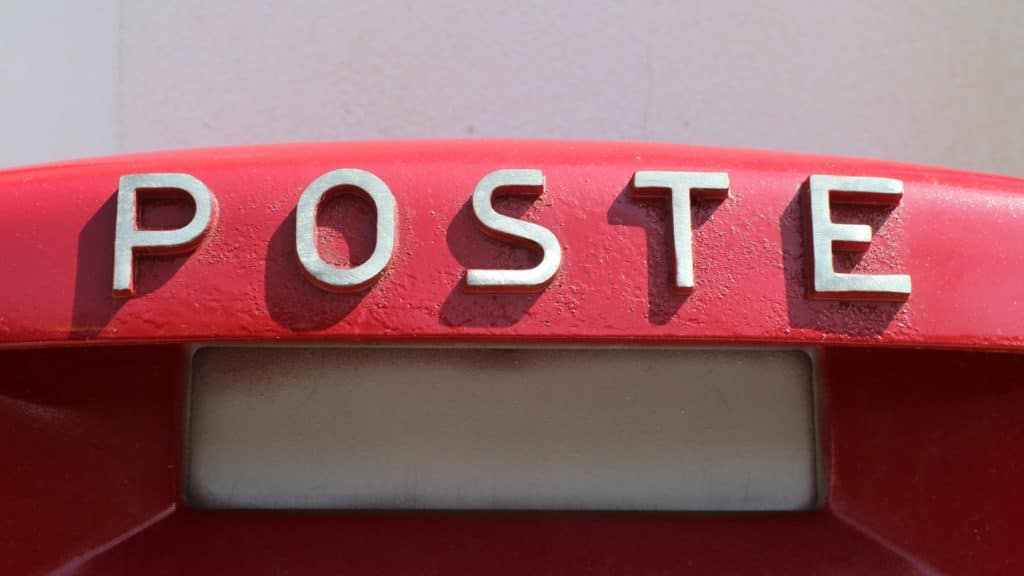Exemption from a fine does not constitute State aid when it is based on transparent and pre-determined criteria. Infringement of EU law determines the compatibility of State aid, not the existence of State aid. Introduction An exemption from legal requirements that confers a selective advantage does not necessarily amount to State aid. In most cases, when beneficiaries are found not […]
State Aid Law
Blog
State Aid Uncovered Blog
In Lexxion’s State Aid Uncovered blog, Prof. Phedon Nicolaides publishes weekly critical analyses of recent State aid judgments and decisions. Each post presents the key points of a court judgment or EU Commission decision, places it in the context of similar case law or practice, assesses the underlying reasoning and highlights any inconsistencies or contradictions.
Guest contributions from other State aid experts will also be published on the blog at irregular intervals to complement the content of the blog posts.
State Aid Uncovered ×
10. August 2021 |
State Aid Uncovered
by Phedon Nicolaides
23. March 2021 |
State Aid Uncovered
by Phedon Nicolaides
Exclusive rights may constitute State aid if they mandate payments with resources over which the state can exercise control. Compensation for the cost of public service obligations may be granted only if the obligations are clear and define a service that is different from market services. Introduction Article 106(1) TFEU requires Member States not to distort competition when they grant […]
9. March 2021 |
State Aid Uncovered
by Phedon Nicolaides
A measure is imputable to the state whenever the state is involved in its adoption or shapes the decision that leads to its adoption. Introduction One of the trickiest aspects of determining whether a financial transaction involves State aid is its attribution or imputation to a decision of the state, especially when the entity providing the funding is private. Private […]
26. January 2021 |
State Aid Uncovered
by Phedon Nicolaides
The definition of quality indicators and the establishment of certificates of quality do not amount to control by the state over the resources belonging to non-state entities. Introduction Consider the case of a public university which decides to finance the proposal of one of its researchers to launch a research project in collaboration with a private company. For sure the […]
21. December 2020 |
State Aid Uncovered
by Phedon Nicolaides
Prices fixed by the state do not necessarily confer control to the state over the private resources which are used to pay those prices. Introduction Judging from how many times EU courts have been asked to interpret the concept of state resources, it seems that one of the most difficult aspects of Article 107(1) TFEU is to determine whether funding […]
8. September 2020 |
State Aid Uncovered
by Phedon Nicolaides
A snapshot of Covid-19 State aid Number of Covid-19 approved measures1, 2 [EU27 + UK, 4 September 2020] 19-15 13-11 9-7 6-4 BE CZ DK IT PL DE FR HU LV NL BG EL FI IE LT LU MT RO SE SK UK AT CY EE ES HR PT SI Source: DG Competition, author’s own calculations 1: Data exclude amendments […]
14. July 2020 |
State Aid Uncovered
by Phedon Nicolaides
The Annual Competition Report is a useful document, but it should provide more information on the results of the ex post evaluations and ex post monitoring. Update on Temporary Framework: Number of approved and published COVID-19 measures, as of 10 July 2020: 202* Legal basis: Article 107(2)(b): 20; Article 107(3)(b): 171; Article 107(3)(c): 17 Six Member States have implemented 11 […]
16. June 2020 |
State Aid Uncovered
by Phedon Nicolaides
Public funding that flows through intermediaries to third parties also counts as a state resource if the intermediaries carry out instructions by the funding authority. Temporary Framework: Number of approved covid-19 measures, as of 12 June 2020: 154* Legal basis: Article 107(2)(b): 14; Article 107(3)(b): 130; Article 107(3)(c): 14 Three recapitalisation measures have been approved [Finland, Lithuania & Poland]. The […]
25. February 2020 |
State Aid Uncovered
by Phedon Nicolaides
Liability assumed by the state for the actions of an undertaking constitutes a selective advantage that may result in potential transfer of state resources in the future. Introduction On 16 January 2020 the General Court delivered its judgment in case T‑257/18, Iberpotash v European Commission.[1] Iberpotash, a Spanish company, appealed against Commission decision 2018/118. Iberpotash owns and operates potash mines […]
14. January 2020 |
State Aid Uncovered
by Phedon Nicolaides
State aid rules can apply to sectors which are legal monopolies. Introduction The fact that a company enjoys exclusive rights and operates in a sector covered by a legal monopoly does not necessarily insulate it from State aid rules. This has been confirmed by the Court of Justice in its judgment of 19 December 2019, in case C-385/18, Arriva Italia […]
State Aid Uncovered ×
10. August 2021 |
State Aid Uncovered
by Phedon Nicolaides
Exemption from a fine does not constitute State aid when it is based on transparent and pre-determined criteria. Infringement of EU law determines the compatibility of State aid, not the existence of State aid. Introduction An exemption from legal requirements that confers a selective advantage does not necessarily amount to State aid. In most cases, when beneficiaries are found not […]
23. March 2021 |
State Aid Uncovered
by Phedon Nicolaides
Exclusive rights may constitute State aid if they mandate payments with resources over which the state can exercise control. Compensation for the cost of public service obligations may be granted only if the obligations are clear and define a service that is different from market services. Introduction Article 106(1) TFEU requires Member States not to distort competition when they grant […]
9. March 2021 |
State Aid Uncovered
by Phedon Nicolaides
A measure is imputable to the state whenever the state is involved in its adoption or shapes the decision that leads to its adoption. Introduction One of the trickiest aspects of determining whether a financial transaction involves State aid is its attribution or imputation to a decision of the state, especially when the entity providing the funding is private. Private […]
26. January 2021 |
State Aid Uncovered
by Phedon Nicolaides
The definition of quality indicators and the establishment of certificates of quality do not amount to control by the state over the resources belonging to non-state entities. Introduction Consider the case of a public university which decides to finance the proposal of one of its researchers to launch a research project in collaboration with a private company. For sure the […]
21. December 2020 |
State Aid Uncovered
by Phedon Nicolaides
Prices fixed by the state do not necessarily confer control to the state over the private resources which are used to pay those prices. Introduction Judging from how many times EU courts have been asked to interpret the concept of state resources, it seems that one of the most difficult aspects of Article 107(1) TFEU is to determine whether funding […]
8. September 2020 |
State Aid Uncovered
by Phedon Nicolaides
A snapshot of Covid-19 State aid Number of Covid-19 approved measures1, 2 [EU27 + UK, 4 September 2020] 19-15 13-11 9-7 6-4 BE CZ DK IT PL DE FR HU LV NL BG EL FI IE LT LU MT RO SE SK UK AT CY EE ES HR PT SI Source: DG Competition, author’s own calculations 1: Data exclude amendments […]
14. July 2020 |
State Aid Uncovered
by Phedon Nicolaides
The Annual Competition Report is a useful document, but it should provide more information on the results of the ex post evaluations and ex post monitoring. Update on Temporary Framework: Number of approved and published COVID-19 measures, as of 10 July 2020: 202* Legal basis: Article 107(2)(b): 20; Article 107(3)(b): 171; Article 107(3)(c): 17 Six Member States have implemented 11 […]
16. June 2020 |
State Aid Uncovered
by Phedon Nicolaides
Public funding that flows through intermediaries to third parties also counts as a state resource if the intermediaries carry out instructions by the funding authority. Temporary Framework: Number of approved covid-19 measures, as of 12 June 2020: 154* Legal basis: Article 107(2)(b): 14; Article 107(3)(b): 130; Article 107(3)(c): 14 Three recapitalisation measures have been approved [Finland, Lithuania & Poland]. The […]
25. February 2020 |
State Aid Uncovered
by Phedon Nicolaides
Liability assumed by the state for the actions of an undertaking constitutes a selective advantage that may result in potential transfer of state resources in the future. Introduction On 16 January 2020 the General Court delivered its judgment in case T‑257/18, Iberpotash v European Commission.[1] Iberpotash, a Spanish company, appealed against Commission decision 2018/118. Iberpotash owns and operates potash mines […]
14. January 2020 |
State Aid Uncovered
by Phedon Nicolaides
State aid rules can apply to sectors which are legal monopolies. Introduction The fact that a company enjoys exclusive rights and operates in a sector covered by a legal monopoly does not necessarily insulate it from State aid rules. This has been confirmed by the Court of Justice in its judgment of 19 December 2019, in case C-385/18, Arriva Italia […]
State Aid Uncovered ×
10. August 2021 |
State Aid Uncovered
by Phedon Nicolaides
Exemption from a fine does not constitute State aid when it is based on transparent and pre-determined criteria. Infringement of EU law determines the compatibility of State aid, not the existence of State aid. Introduction An exemption from legal requirements that confers a selective advantage does not necessarily amount to State aid. In most cases, when beneficiaries are found not […]
23. March 2021 |
State Aid Uncovered
by Phedon Nicolaides
Exclusive rights may constitute State aid if they mandate payments with resources over which the state can exercise control. Compensation for the cost of public service obligations may be granted only if the obligations are clear and define a service that is different from market services. Introduction Article 106(1) TFEU requires Member States not to distort competition when they grant […]
9. March 2021 |
State Aid Uncovered
by Phedon Nicolaides
A measure is imputable to the state whenever the state is involved in its adoption or shapes the decision that leads to its adoption. Introduction One of the trickiest aspects of determining whether a financial transaction involves State aid is its attribution or imputation to a decision of the state, especially when the entity providing the funding is private. Private […]
26. January 2021 |
State Aid Uncovered
by Phedon Nicolaides
The definition of quality indicators and the establishment of certificates of quality do not amount to control by the state over the resources belonging to non-state entities. Introduction Consider the case of a public university which decides to finance the proposal of one of its researchers to launch a research project in collaboration with a private company. For sure the […]
21. December 2020 |
State Aid Uncovered
by Phedon Nicolaides
Prices fixed by the state do not necessarily confer control to the state over the private resources which are used to pay those prices. Introduction Judging from how many times EU courts have been asked to interpret the concept of state resources, it seems that one of the most difficult aspects of Article 107(1) TFEU is to determine whether funding […]
8. September 2020 |
State Aid Uncovered
by Phedon Nicolaides
A snapshot of Covid-19 State aid Number of Covid-19 approved measures1, 2 [EU27 + UK, 4 September 2020] 19-15 13-11 9-7 6-4 BE CZ DK IT PL DE FR HU LV NL BG EL FI IE LT LU MT RO SE SK UK AT CY EE ES HR PT SI Source: DG Competition, author’s own calculations 1: Data exclude amendments […]
14. July 2020 |
State Aid Uncovered
by Phedon Nicolaides
The Annual Competition Report is a useful document, but it should provide more information on the results of the ex post evaluations and ex post monitoring. Update on Temporary Framework: Number of approved and published COVID-19 measures, as of 10 July 2020: 202* Legal basis: Article 107(2)(b): 20; Article 107(3)(b): 171; Article 107(3)(c): 17 Six Member States have implemented 11 […]
16. June 2020 |
State Aid Uncovered
by Phedon Nicolaides
Public funding that flows through intermediaries to third parties also counts as a state resource if the intermediaries carry out instructions by the funding authority. Temporary Framework: Number of approved covid-19 measures, as of 12 June 2020: 154* Legal basis: Article 107(2)(b): 14; Article 107(3)(b): 130; Article 107(3)(c): 14 Three recapitalisation measures have been approved [Finland, Lithuania & Poland]. The […]
25. February 2020 |
State Aid Uncovered
by Phedon Nicolaides
Liability assumed by the state for the actions of an undertaking constitutes a selective advantage that may result in potential transfer of state resources in the future. Introduction On 16 January 2020 the General Court delivered its judgment in case T‑257/18, Iberpotash v European Commission.[1] Iberpotash, a Spanish company, appealed against Commission decision 2018/118. Iberpotash owns and operates potash mines […]
14. January 2020 |
State Aid Uncovered
by Phedon Nicolaides
State aid rules can apply to sectors which are legal monopolies. Introduction The fact that a company enjoys exclusive rights and operates in a sector covered by a legal monopoly does not necessarily insulate it from State aid rules. This has been confirmed by the Court of Justice in its judgment of 19 December 2019, in case C-385/18, Arriva Italia […]













